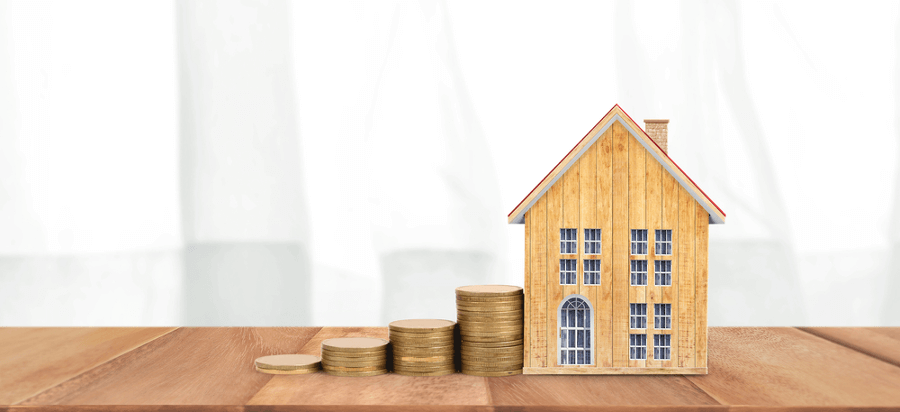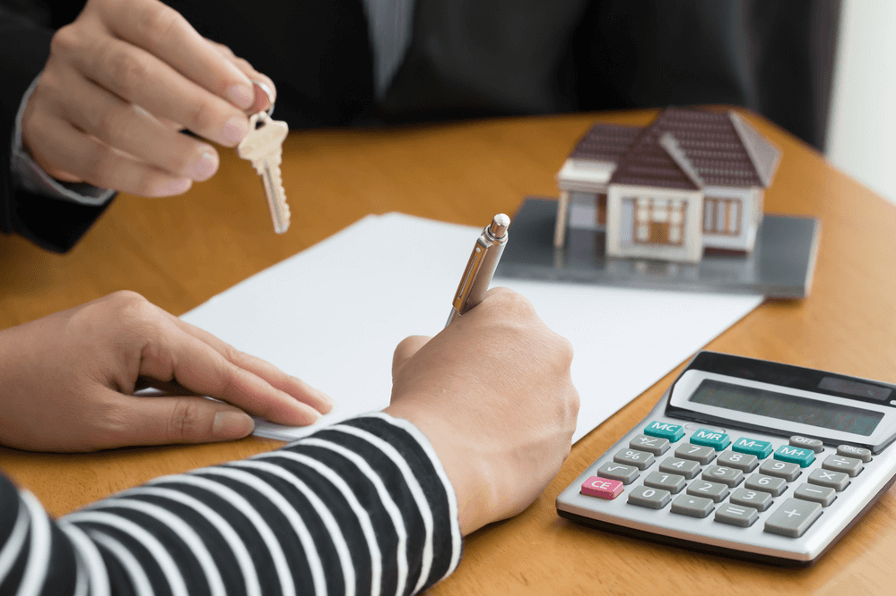


17 Aug 2020

Saving for a house deposit is the first step you take towards becoming a homeowner. There will be many more steps along the way, but getting your savings together is essential. It helps prove you're serious about owning a home and makes banks and lenders more likely to offer you a home loan. But it's not easy to save for a house deposit, so try these tips to get there faster.
The exact amount you will require for a house deposit will vary based on the price of the property. Most lenders won't want to give you a home loan if you have less than 20% of the total cost of the property to pay upfront as a deposit. For example, if the property you want to purchase costs a total of $500,000, then the deposit will be $100,000.
An easy way of calculating a budget is to divide the total purchase price of a property by five.
If you're approaching your lender to receive a home loan after you've already decided what property to purchase, this is easy to calculate. If you haven't found your dream home yet but you want pre-approval from a bank or lender and you want to know how much to save, you can estimate based on the sale prices of similar properties in the region. (If you want to purchase a three-bedroom detached home then you'll want to look at the prices for other three-bedroom homes in the area, not the prices for one-bedroom apartments.)
There are a lot of variables when it comes to saving for a house deposit. You have to take into account your income, your spending, and your savings account interest rates. Higher interest rates for your savings account will help you accrue savings faster, but there are other ways to save money as well.
The biggest obstacle you'll face when trying to save for a house deposit is your spending. Some of that spending is necessary things like rent, groceries, bills, insurance and other items that aren't going to go away. But other spending can be cut down a little bit with the use of a budget. Use whatever medium works for you (Excel, Google Sheets, a whiteboard, a notebook) and construct a budget.
To make a budget, first write down your income (weekly, fortnightly, or monthly – whichever you prefer), and then subtract all necessary spending. Then you can subtract a set amount for "fun" spending if you like (such as ordering in or going to see a movie once a fortnight). This means that you won't feel the strain of budgeting as much. Finally, the remaining amount is what you can put into your savings account to put towards a house deposit.
Debts can seriously hamper your savings. Each month you might have several debts or loans to repay. To save money, try consolidating your debts. This means combining all your debts into one larger but more manageable debt. This can help you save money, as you can consolidate a debt that has a high-interest rate into one with a low-interest rate. For example, a car loan may have a higher interest rate than a personal loan, so talk to the provider of the lower-interest loan and see if they can help you consolidate your loans.

A budget will help you realise how much you can be putting into savings each week/fortnight/month, but it doesn't have to end there. Once you know how much you can put into savings, set up automatic payments into that savings account. It'll be one less thing you have to remember to do each week, and it will ensure the savings make their way into your savings account. Plus, a savings account generally has a higher interest rate than a standard account, so your money is better off there. Log into your bank or credit union's website to organise automated transfers from your spending account to your savings account.
Interest is calculated by adding a small percentage of the balance of the account, so if you have $1,000 and 2% interest, after the interest period you'll have $1020. Higher interest and higher initial balances mean more money gained in interest.
The most popular government scheme for homebuyers is the First Homeowner Grant. This grant will help you pay for your home (up to $20,000 towards the home in some states). You could also try to take advantage of the First Home Loan Deposit Scheme, which can lower the required deposit to as small as 5% of the purchase price of the property. This can help you buy a property faster, but it's worth noting that lower deposits can mean more interest paid over the life of the home loan.
If the savings you're putting into your savings account aren't as big as you would like, or maybe you can't afford to put anything into savings right now, it might be worth considering a second job. Freelance roles are a good option, as for the most part your only responsibility will be delivering the materials you agreed to (such as an artwork or a piece of writing you created for the client). Delivery or ride-share driving is also a popular second job since all you need is a car.
If you can't find another job or don't have the time for another job, try going back to the drawing board and re-budgeting to find any wiggle room to increase your savings.
Once you've saved what should be enough for a home loan deposit, it's time to start talking to banks/lenders and browsing for your new home.